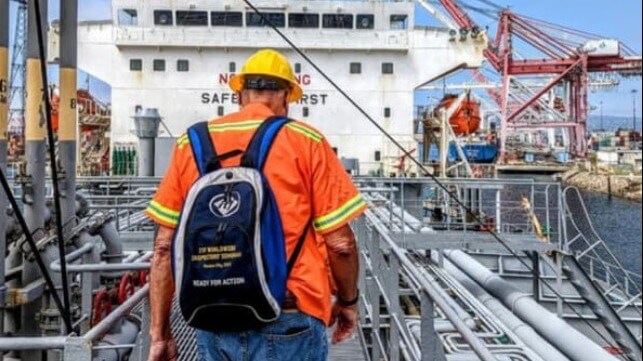Crews Win Compensation as Abandonment Reached Record High in 2021

The number of cases of crew abandonment continues to rise possibly due to the strains on the industry during the pandemic. While port states such as Australia have been aggressive when the cases are reported to them, the International Transport Workers’ Federation and the charitable organization Stella Maris are also reporting with the increased support of organizations and government they are making progress in winning compensation for crewmembers globally.
The ITF reported 85 cases of abandonment to the International Labour Organization (ILO) last year, a historic high according to the union. In many of those cases, they report that the abandoned crew had already been waiting several weeks or months for unpaid wages.
“It’s not uncommon for crew to be paid the at the wrong rate by a shipowner, or less than the rate set out in the employment agreement covering the ship,” said Steve Trowsdale, the ITF’s Inspectorate Coordinator. “Seafarers might think it’s normal to go unpaid for a couple of months, waiting for a shipowner to sort out financing, but they need to be aware that non-payment can also be a sign that a shipowner is about to cut them loose and leave them abandoned.”
Often the cases end when port states and governments step in to return their citizens after being abandoned around the world. Stella Maris, the largest ship-visiting network in the world, and the official maritime charity of the Catholic Church, however, is also reporting a case where it was able to build trust with the crew and help them to win further compensation in the courts.
A group of 32 Thai crewmembers working on a fishing vessel turned to social media in June 2019 after they were abandoned by the commercial vessel Wadani 1 without their pay in Somalia. Some of the crew had been aboard for a year working first off Iran and later Somalia without being properly paid. Stuck in Somalia their food supplies were running dangerously low.
Stella Maris Thailand Seafarers Centre Director and port chaplain Apinya Tajit worked with Thailand’s Ministry of Foreign Affairs and the Thai Embassy that looks after Somalia. The embassy negotiated with authorities in Somalia and the vessel’s owners to send the men home. They were returned to Thailand by the end of August 2019, where normally these stories end.
Instead, working with local lawyers, Stella Maris was able to build trust with the crew and helped the men to initiate legal proceedings for human trafficking and to recover the crew’s unpaid wages. Last month, Thailand’s Central Labor Court ruled in favor of the 32 crewmembers awarding them approximately $255,000 in compensation to cover the unpaid wages and holiday pay.
The ITF reports that its 125 inspectors and coordinators completed 7,265 inspections in 2021 to support thousands of seafarers with wage claims and repatriation cases. They are trained to look for exploitation, overwork, and signs of forced labor. On many vessels, Inspectors have the right to examine wage accounts, and employment contracts, and to review recorded hours of work and rest.
“Concerningly, we’re seeing a rise in the number of seafarers reporting non-payment of wages for periods of two months or longer, which meets the ILO’s definition of abandonment,” reports Trowsdale. He said the ITF however was able to claw back nearly $37.6 million in unpaid wages and entitlements from shipowners in 2021.
As an example of their work, the union highlighted that its inspector based in Hong Kong, Jason Lam, helped eight Burmese seafarers who were crewing the MV Lidia recover almost $30,000 in unpaid wages after they ran aground in October 2021. They had been left nearly shipwrecked after a typhoon, says the ITF, with the shipowner refusing to pay the two months’ wages owed the crew and without assistance to get home.

that matters most
Get the latest maritime news delivered to your inbox daily.
“I’m extremely proud of the work our inspectors have done to support seafarers in the last year, often working in the face of incredibly difficult circumstances,” said Trowsdale. “As the crew change crisis worsened in early 2021, a flood of requests filled the ITF’s inboxes from crew desperate to sign off and get home.”
The ITF reports that breach of contract was the number one failure of ship owners identified by its inspectors in 2021. Out of the 7,265 inspections performed, a quarter was the result of requests from crew or individual seafarers and 1,795 cases were classified as a breach of contract. The ITF uses this term to include illegitimate extensions to work periods, unacceptable or unsafe work conditions, and failure to abide by agreed rates of pay.
